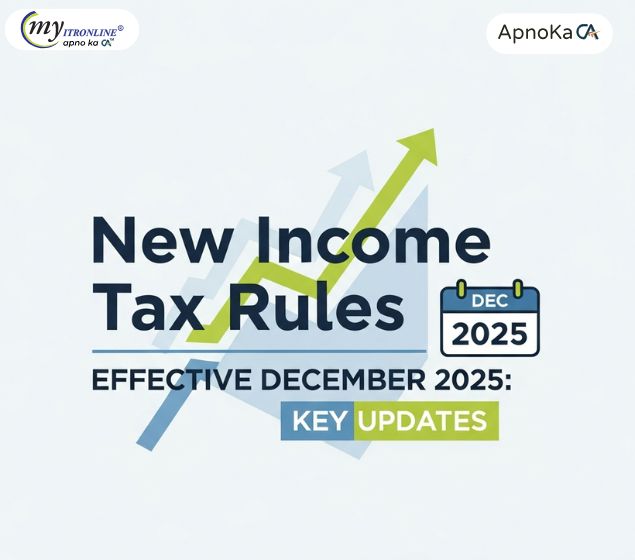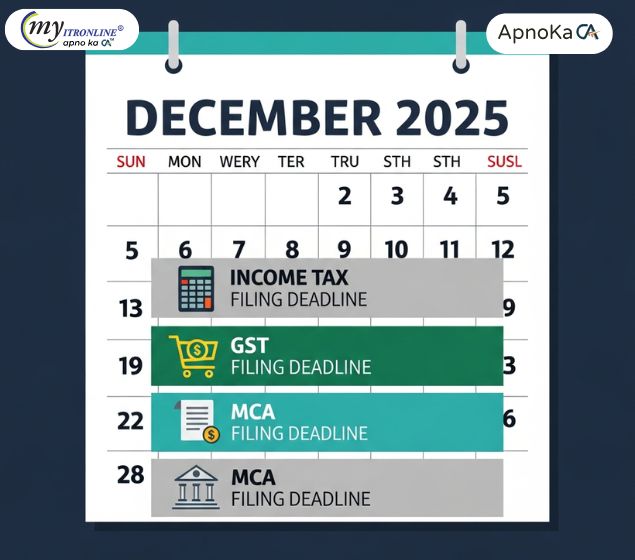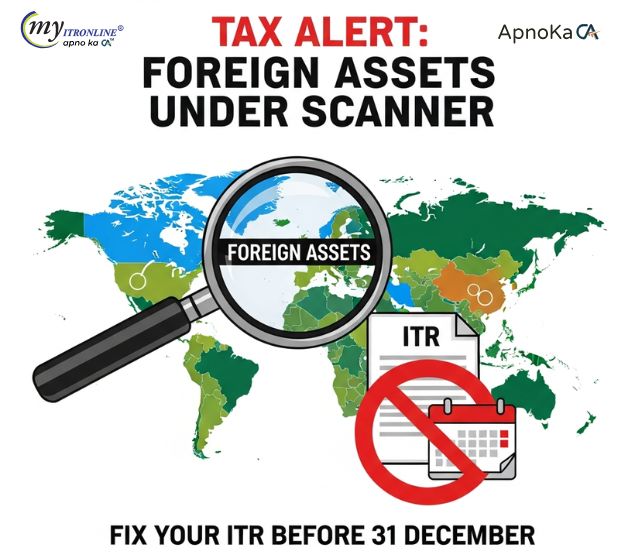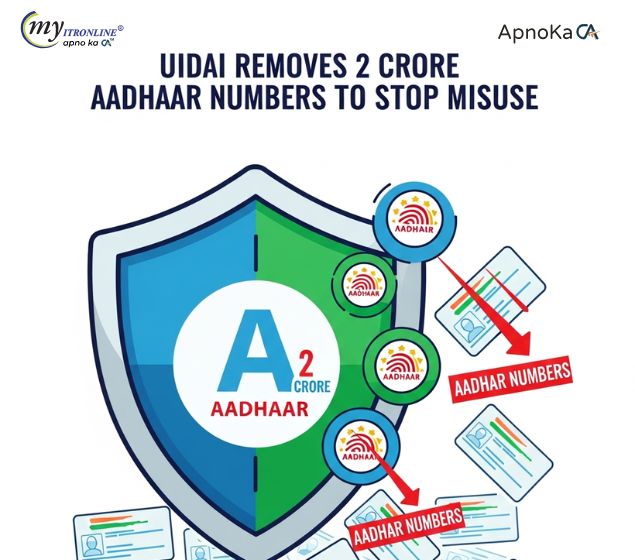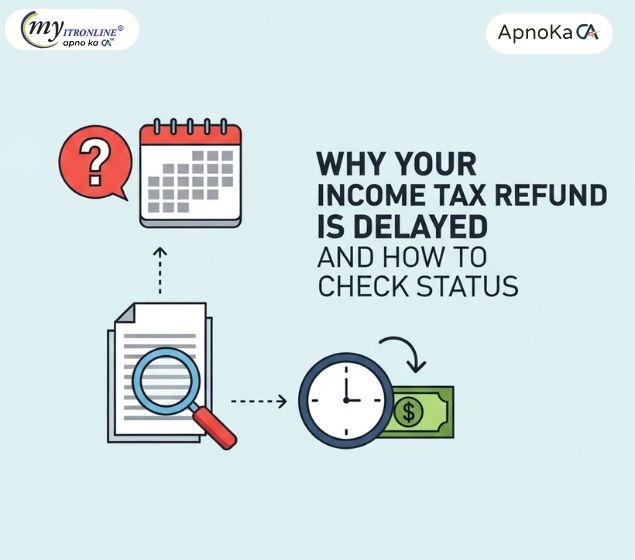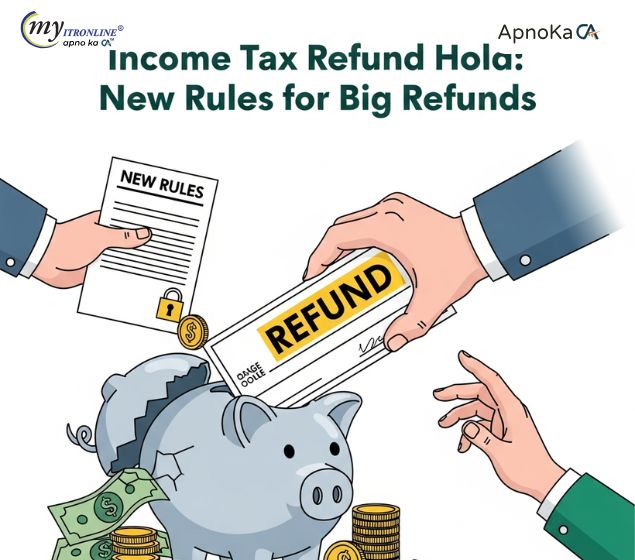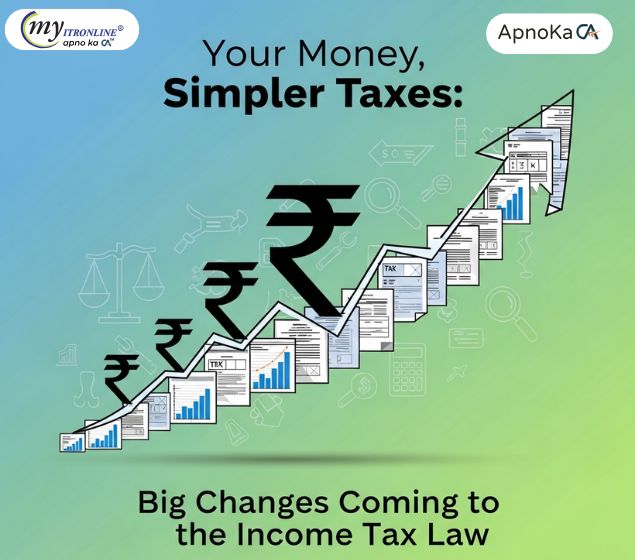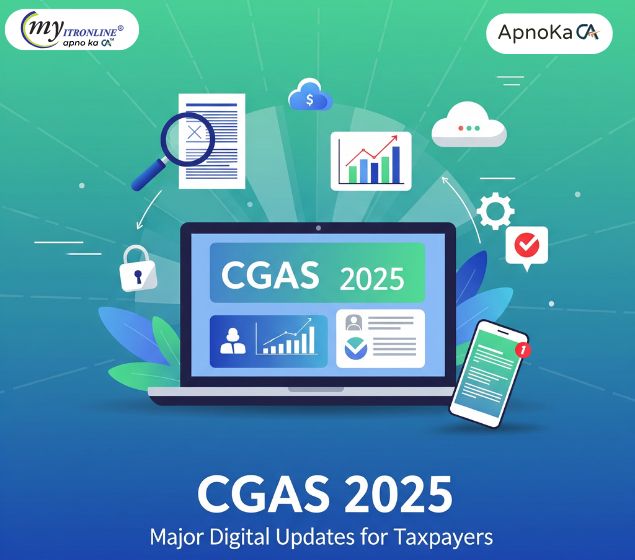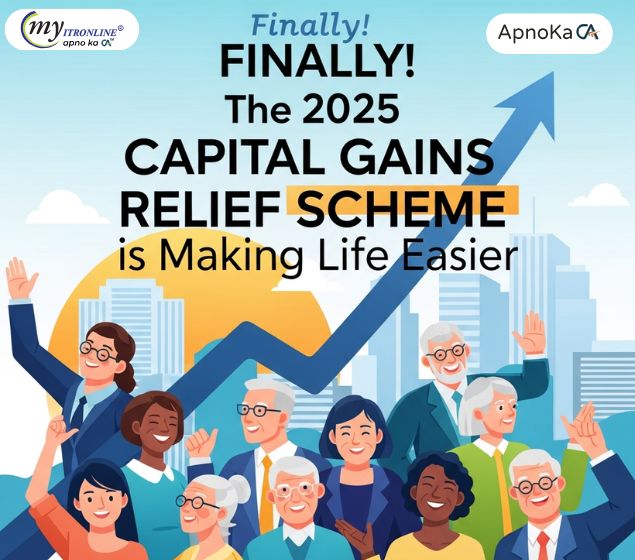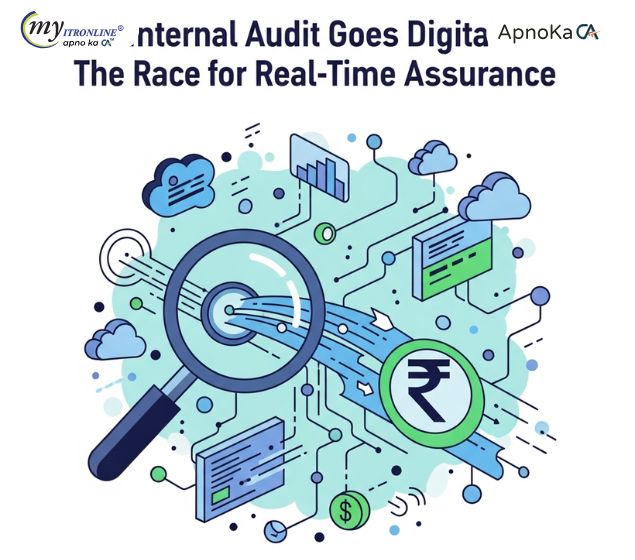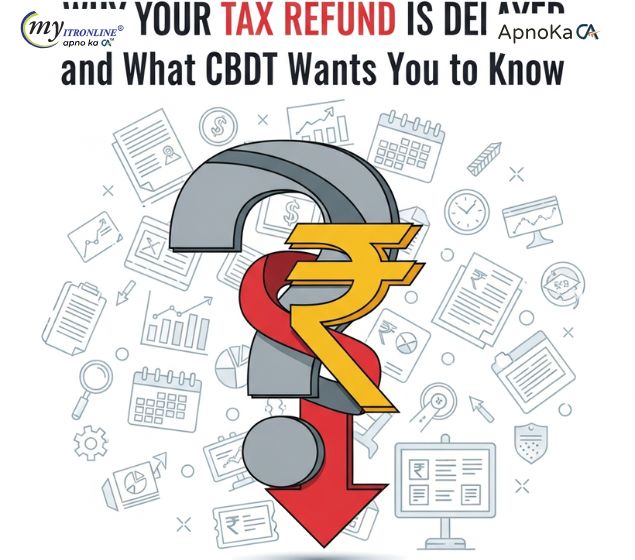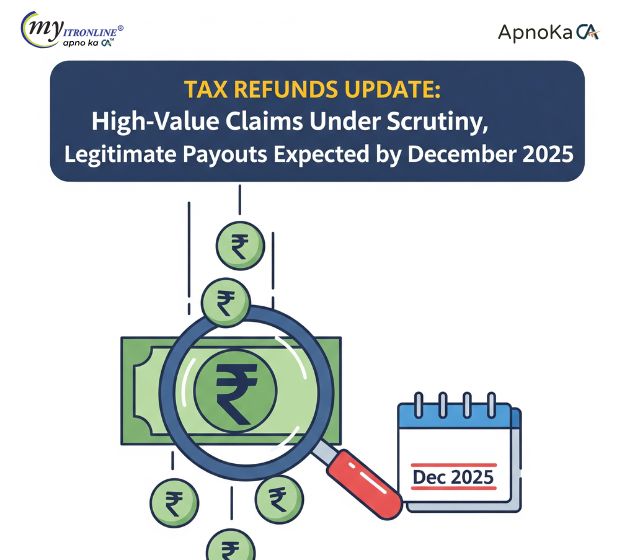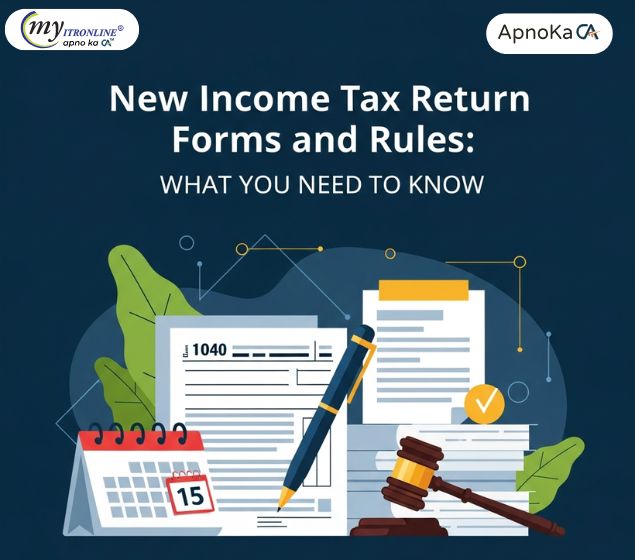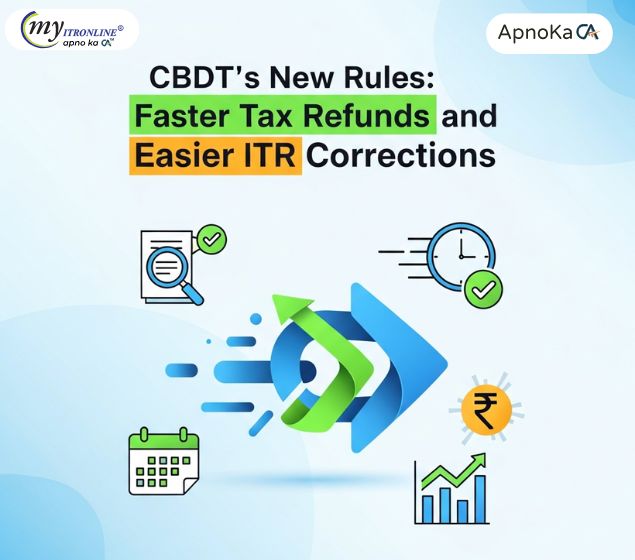New Income Tax Rules FY 2025-26: What You Must Know
The Income Tax Department is making significant updates and tightening compliance for FY 2025-26 (AY 2026-27). This blog post serves as an important "taxpayer alert." It explains key changes, such as the mandatory Aadhaar-based verification for updates to the e-filing portal and PAN applications. There is also a stronger emphasis on computer-assisted scrutiny (CASS) for certain types of returns, including survey/search cases, ITR-7 filers, recurring additions, and intelligence alerts. Additionally, it provides information on expected delays in ITR refunds due to outstanding demands and technical upgrades. The focus on HRA claims will tighten, especially those that involve family members. It highlights the need for proactive compliance, careful record-keeping, and timely responses to avoid penalties and ensure a smooth tax experience.
.jpg )
The Income Tax Department (ITD) is continuously changing. It is introducing new rules and strengthening existing ones to improve transparency, reduce tax evasion, and simplify processes. As we enter the Financial Year 2025-26 (Assessment Year 2026-27), taxpayers must be aware of several important changes and stricter compliance measures. Ignoring these updates could result in delays, penalties, or increased scrutiny.
Here’s a breakdown of the key new rules and areas where the ITD is becoming stricter. Here’s what you need to know and do as a taxpayer:
1. Mandatory Aadhaar-Based Verification for Key E-filing Portal Updates
The Rule: The ITD now requires Aadhaar-based OTP verification for updating important details like your email ID or mobile number on the e-filing portal. This verification is also needed when applying for a new PAN card.
Why it Matters: This requirement is a significant step to prevent unauthorized access and fraudulent changes to taxpayer profiles. It ensures that only the correct taxpayer can change their contact information, reducing attempts by fraudsters to take control of accounts or redirect communication. For new PAN applications, this requirement aims to make the tax system clearer and prevent duplicate PANs.
What You Need to Do:
- Keep your Aadhaar linked to an active mobile number: Ensure that the phone number registered with your Aadhaar is active and capable of receiving OTPs for verification.
- Link PAN with Aadhaar (if not done): The deadline for linking PAN with Aadhaar has been extended to December 31, 2025. If you do not link by this date, your PAN will become "inoperative," leading to a fine of ₹ 1,000 for late linking and potential issues with tax-related transactions.
- Verify contact details on the e-filing portal: Regularly check to ensure your email ID and mobile number on the Income Tax e-filing portal are current and confirmed via the Aadhaar OTP.
2. Intensified Scrutiny Under CASS and Specific Categories
The Rule: The Central Board of Direct Taxes (CBDT) has issued new guidelines for mandatory scrutiny of Income Tax Returns for FY 2025-26 (AY 2026-27). This marks a move toward more evidence-based compliance, moving away from a "file and forget" approach for some cases. The Computer-Assisted Scrutiny Selection (CASS) system is getting smarter at identifying high-risk returns.
Key Categories Subject to Compulsory Scrutiny:
- Survey-Based Cases (Section 133A): If a survey was conducted on you on or after April 1, 2023, your return for the corresponding financial year will be under mandatory scrutiny.
- Search and Requisition Cases (Sections 132 & 132A): ITRs linked to individuals or entities that underwent a search or requisition between April 1, 2023, and March 31, 2025, will face automatic scrutiny. This applies to all linked entities and persons.
- ITR-7 Filers Claiming Exemptions Without Valid Registration: Charitable trusts, NGOs, and institutions claiming tax-exempt income under Sections 12A, 12AB, or 10(23C) will face scrutiny if their registration was not granted, was canceled, or withdrawn but they still claim it in their return.
- Recurring Additions in Previous Years (Confirmed by Appeal): If you faced recurring tax additions of ₹50 lakh (in metro cities) or ₹20 lakh (elsewhere) or more in past assessments upheld on appeal, the same issue in the current return will trigger scrutiny.
- Tax Evasion Alerts by Intelligence Agencies: Returns will automatically be scrutinized if there are credible alerts or reports of tax evasion from law enforcement, regulatory bodies, or intelligence services. This includes undisclosed foreign income, benami transactions, fake donations, or GST mismatches.
- Information Mismatch Cases: Discrepancies between your ITR and information available in Form 26AS, Annual Information Statement (AIS), or Taxpayer Information Summary (TIS) can lead to scrutiny.
What You Need to Do:
- Cross-verify all data: Before filing, carefully check all income, TDS, and other financial transaction details against Form 26AS, AIS, and TIS. Even small errors can trigger a formal inquiry.
- Maintain proper documentation: Ensure you have supporting documents for all income, deductions, and exemptions claimed. The ITD is focusing on evidence-backed compliance.
- Be audit-ready: Be prepared for your return to be selected for scrutiny, no matter your income level.
- Seek expert advice for complex cases: If your case falls into any compulsory scrutiny categories or involves significant transactions, consult a tax professional.
3. Delays in ITR Refunds: Understanding the 'Why' and What to Expect
The Rule/Trend: While not a new rule, the ITD is applying existing provisions (like Section 245 and 241A) more strictly to withhold or adjust refunds. Technical upgrades and delayed utility releases also contribute to refund delays for the current assessment year.
Reasons for Delay/Withholding:
- Outstanding Demands (Section 245): If you have pending tax demands from previous years, your current year's refund can be adjusted against them after you receive an intimation.
- Pending Scrutiny/Verification (Section 241A): If your return is selected for scrutiny or further verification, the refund may be withheld to ensure recovery of revenue. This especially applies to cases with large refunds or significant discrepancies.
- Technical Glitches & Backend Upgrades: Delays in releasing ITR-2 and ITR-3 utilities (for capital gains, business/professional income, etc.) and ongoing changes in forms after the Finance Act, 2024, are causing processing delays.
- Increased Backend Checks: The ITD is thoroughly reviewing past records to detect fraudulent refund claims, adding to turnaround times.
What You Need to Do:
- Monitor your ITR status: Regularly check your filed return's status on the e-filing portal (incometax.gov.in).
- Respond to notices immediately: If you receive an "Intimation under Section 245" or any other notice about your refund, respond within the specified timeframe (typically 15-30 days). If you disagree with demands, explain why and provide supporting documents.
- Ensure pre-validated bank account: Your bank account for receiving refunds must be pre-validated on the e-filing portal.
- Be patient but persistent: While delays are common, keep track of communications. If delays persist without reason, consider filing a grievance.
4. Focused Scrutiny on HRA Claims
The Rule/Trend: The ITD is increasingly checking House Rent Allowance (HRA) claims, especially when rent is paid to close family members (like a spouse or parents). While claiming HRA for legitimate payments to relatives is acceptable, the department is flagging situations that seem like a scheme to reduce tax liability.
Red Flags for HRA Claims:
- Rent paid in cash without corresponding bank withdrawals.
- Discrepancies between rent-related documents and Form 16, Form 26AS, or AIS.
- Claiming HRA while owning a self-occupied home in the same city without a valid reason.
- Landlord not declaring the rental income.
- Lack of a valid rent agreement, rent receipts, and landlord's PAN (if rent exceeds ₹ 1 lakh annually).
What You Need to Do:
- Maintain robust documentation: Keep a valid rent agreement, rent receipts, and landlord's PAN (if applicable).
- Ensure genuine transactions: Make rent payments through banking channels to create a clear money trail.
- Avoid dubious arrangements: Make sure the rental setup is genuine and not just for tax evasion. Be ready to prove your claim with verifiable evidence.
Conclusion: The Era of Proactive Compliance
The ITD's "new rules" mainly show a stronger focus on proactive compliance and solid data verification. The goal is to use technology to uncover discrepancies and ensure every taxpayer pays their fair share.
For you, the taxpayer, this means:
- Accuracy is key: Double-check every detail in your ITR against all available data sources.
- Timeliness is crucial: Respond promptly to all ITD communications.
- Documentation is essential: Keep your financial records organized and accessible.
- Stay informed: The tax landscape is always changing. Keep up with the latest updates.
By being informed and diligent, you can easily navigate the changing tax environment and ensure a smooth tax experience. Don’t wait for a notice; take charge of your compliance!
FILING YOUR INCOME TAX RETURN F.Y 2024-25 (A.Y. 2025-2026) WITH MYITRONLINE
The income tax filing deadline is right around the corner. If you haven’t filed yet, do it today with Myitronline! Avoid last minute rush and file your tax return today on MYITRONLINE in Just 5 mins.(www.myitronline.com)
If you are looking for eCA assistance to file your income tax return/ GST, you can opt for MYITRONLINE eCA assisted plan starting
Upload Salary Individual Form-16
If you have any questions with filing your tax return, please reply to this mail. info@myitronline.com OR call 9971055886,8130309886.
Note-All the aforementioned information in the article is taken from authentic resources and has been published after moderation. Any change in the information other than fact must be believed as a human error. For queries mail us at marketing@myitronline.com
Krishna Gopal Varshney
An editor at apnokacaKrishna Gopal Varshney, Founder & CEO of Myitronline Global Services Private Limited at Delhi. A dedicated and tireless Expert Service Provider for the clients seeking tax filing assistance and all other essential requirements associated with Business/Professional establishment. Connect to us and let us give the Best Support to make you a Success. Visit our website for latest Business News and IT Updates.
Leave a reply
Your email address will not be published. Required fields are marked *Share this article
Krishna Gopal Varshney, Founder & CEO of Myitronline Global Services Private Limited at Delhi. A dedicated and tireless Expert Service Provider for the clients seeking tax filing assistance and all other essential requirements associated with Business/Professional establishment. Connect to us and let us give the Best Support to make you a Success. Visit our website for latest Business News and IT Updates.
View articles








